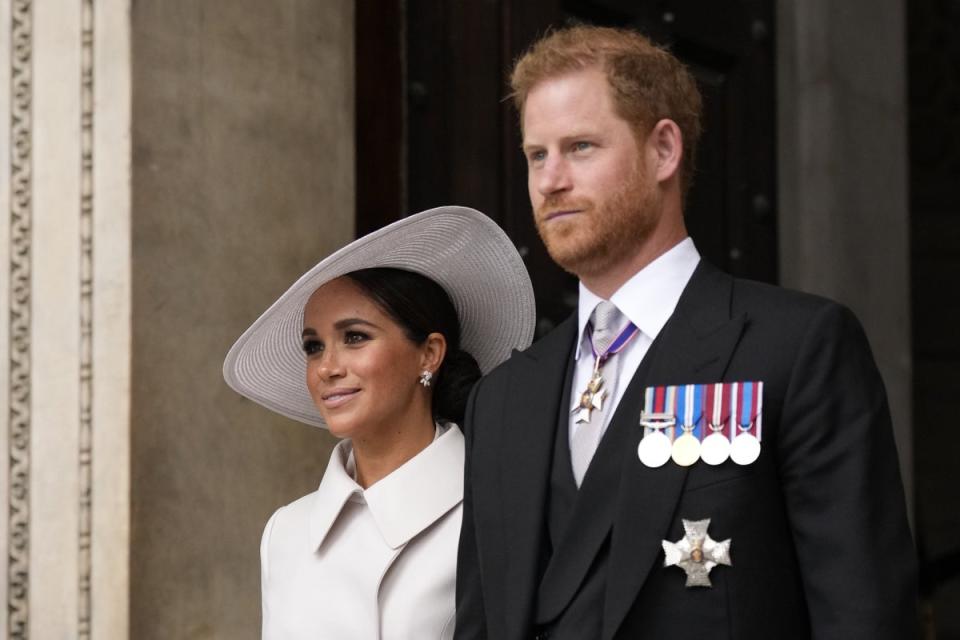Prince Harry says it’s ‘not fair’ palace had say on plan to cut his security after he quit as royal

Prince Harry did not know members of the Queen’s household were involved in a decision to withdraw his permanent security team amid “tensions” over his exit from the royal family, a court has been told.
The Duke of Sussex has launched a legal challenge arguing the decision was unfair because he did not know details of how it was made and was not given the opportunity to make representations to the board involved.
A representative previously said that he wants to bring his children to visit from the US, but he and his family are “unable to return to his home” because it is too dangerous.
In February 2020, the Executive Committee for the Protection of Royalty and Public Figures (known as Ravec) announced that the duke, his wife and children would no longer be automatically granted police protection on visits to the UK.
The High Court was told that the duke did not know the committee existed, or that members of the royal household were involved, and believed that its decisions were “independent”.
Legal documents filed by his representatives said that at the time, there were “significant” tensions between the duke and the Queen's private secretary, Sir Edward Young.
Shaheed Fatima QC, representing the duke, told a hearing on Thursday: “He should have been told so he could have considered things properly and made representations.
“If there had been a fair process, Ravek would or could have reached a different decision… the role of the royal household as equal partner in the process was inappropriate.”
Sir James Eadie QC, representing the Home Office - which is ultimately responsible for Ravek, said there were no grounds of unfairness.
He told the court: “He [Prince Harry] knew that his security status was being reviewed on the basis of whether automatic provision should continue, as he would cease to be a working royal, and that was plenty enough to enable anything he wanted to say about that to be said.”
Sir James said there was no suggestion of “impropriety” over the involvement of the Queen’s private secretary or any other member of the royal household.
“No one was saying ‘you are not going to get security’, the question was on what basis - is it going to be flexible or is it going to be automatic,” he added.
Sir James said Ravek changed the provision of security for the duke and his family from a permanent to a “case-by-case basis” to reflect that he would stop performing official duties and become primarily a “private citizen, living abroad”.
He argued that although the duke was still a public figure, he would no longer attend events in the UK “as a representative of the Queen”, so his entitlement for publicly funded security was different.
Ms Fatima said the duke had offered to cover the costs of police protection but Ravek refused his offer in January.
Sir James told the court that there was “nothing unlawful about the later decision that individuals shouldn’t be permitted to simply demand security through payment for the police”.
Mr Justice Swift reserved his judgment on whether to grant permission for a full judicial review to a later date, following a closed hearing over details of private communications and sensitive security material.
“I am not making a decision on where the claim succeeds or fails, I am deciding if it is arguable,” he told the court.

 Yahoo Sports
Yahoo Sports 